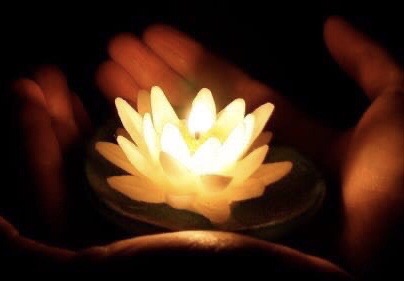
How to Reconcile Unconditional Love and Divorce
All of us have the capacity for unconditional love. However, while this lofty concept is an ideal we can nurture in ourselves, it is not at all appropriate to hold ourselves to it as a gold standard if it is to the exclusion of our own well-being. For this reason, the value of unconditional love can become difficult during divorce.
In fact, many experts believe that no one should throw themselves under the bus of a marriage, or indeed, any relationship, in an attempt to love without boundary. We can love and forgive, accept, understand, and nurture. We can also operate lovingly at a deficit for a while; sometimes our person needs more support and doesn’t have it to give back. This is a situational love deficit, though, not a chronic one. There are healthy conditions for love and there are unhealthy ones. The idea that we must love this way, regardless of how we are loved and treated by the other person in the relationship, is a dangerous one.
Understanding Unconditional Love and Divorce
At the risk of oversimplification, let’s use the following metaphor. To expect unconditional love from ourselves for a spouse is a bit like the pedestrian right-of-way law. It is a great and necessary guideline in theory but in practical application, it is potentially destructive. It’s great if both parties are respectful of the other. However, giving 100 percent of the benefit of the doubt to one partner at all times means that one of them becomes a martyr instead of an equal participant.
The concept of unconditional love was originally coined in the 1930s by psychoanalyst Erich Fromm. Psychologist and A Way of Being author Carol Rogers later expanded on the concept, which he coined as “unconditional positive regard”. While the loving acceptance and non-judgmental receptivity to the whole person that is inherent in Rogers’ philosophy is worth emulating, a therapist is in a much different and much less emotionally vulnerable position than a spouse. The client-therapist relationship might be a symbiotic one, but it is not an intimate partnership.
When I say that the online articles about this concept are often cautionary about some forms of unconditional love, there are still some who attempt to lock spouses into unconditional love by taking a stringently religious, anti-divorce angle. And even those articles spend an awful lot of time circling the issue with scriptural quotations rather than analysis.
Religion and Unconditional Love
Some pastors take a more metaphorical interpretation of religious texts, while others hold a black-and-white interpretation of what Christianity means and what the Bible asks of marriages and spouses. Both can be incredibly supportive of women considering divorce, but the latter can be more apt to counsel women to stay in marriages where abuse runs rampant. All humans are flawed, even church leaders, so if this is happening to you, please consider that we can all have opinions that are skewed a bit too much by bias and seek a third opinion—whether from a divorce coach, therapist or lawyer. Family members often carry the same bias and while well-meaning, they are not always the best source of help when you are unsure.
For healthy action steps, you may wish to read “36 Things to Do If You are Thinking About Divorce.”
While acknowledging that perhaps all world religions weigh in on the subject of unconditional love, this piece only uses Christianity as a point of extrapolation for simplicity’s sake. Not all the religiously inclined online authors take this “unconditional love at the cost of ourselves” perspective, though.
What Scripture Says
The term unconditional love is mentioned on the Bible. However, there are conditions that exist, particularly within the relationship between deity and religious adherent. One example of this is the repentance required for forgiveness, and the Ten Commandments could certainly be viewed as conditions.
“And this is perhaps the nuance we need when thinking about unconditional acceptance. Love calls us to honor the emotions and experiences of others but not to accept any and all behaviors that arise out of these emotions.”
This would tend to argue against the idea that unconditional love is synonymous with blind devotion. It challenges the idea that a devout Christian woman must stay in a marriage even if her spouse is abusive, or that she must acquiesce to our children’s tantrums without curbing them.
What We can Learn from Other Forms of Love
Some of the writers claimed that a mother’s love is the closest thing we have to unconditional love on this planet. To a point, this seems to head in the direction of truth (although it is not to suggest that mothers are perfect or on the hook for being so, and indeed, anyone who has seen the true-story movies Mommy Dearest or Precious know that mothers are just as capable of love’s opposite as anyone else). But mothers who are trying to be their best do reach a place of selflessness with their children. They embody a complete willingness to make the facilitation of their child’s life a priority over their own. That is certainly a facet of unconditional love.
I would say that a dog’s love is the closest thing to unconditional love, and I think that the saying “God is Dog Spelled Backwards” is as accurate an assessment of a spiritual truth as any from the great spiritual leaders.
But even a mother has to set limits with her children. A parent must say “no” occasionally; it is not very loving to take an “anything goes” attitude with a child. That she loves them is unquestionable. But to love without enforcing rules or requiring a code of behavior confuses permissiveness for love. One could make the same argument for a spouse.
The Takeaway
Many people misinterpret unconditional love. It is not spiritually or emotionally mature to go into a long-term relationship with the agenda that we can love our spouse only if they maintain a certain level of wealth and success or if they maintain their 30-year-old physique at 60 or as long as they remain wrinkle-free. This entitled, exclusionary, transactional thinking comes based on conditions somewhat outside our partner’s control.
But it is a mark of self-esteem to go into a long-term relationship with the understanding that we can expect emotional symbiosis—that we love and respect one another to the best of our ability, make allowances on occasion, sustain patience in the face of occasional spats or crankiness, nurture in the face of illness. The golden rule of treating someone the way we would want them to treat us does go both ways, though.
You can love someone completely and even forgive them the very worst abuse without staying married to them. It’s also possible to love from a distance and sometimes that is the only way.
You do not have to stay with someone in order to love them. The only fully enforceable covenant is the one we make to both love ourselves and also be spiritually present by taking responsibility for ourselves and our actions.
If we’re all children of divine love, then we can assume that we are as deserving of that kind of regard as our spouse. Unconditional love does not expect us to tolerate abuse or chronic disrespect, and is therefore perfectly compatible with divorce. Love doesn’t seek to make doormats of us.
Notes
Jennifer Bent is a freelance writer, former print journalist and feature writer living on the West Coast. Nicknamed Verbose at a young age, she loves word craft but has to keep a short leash on her fondness for the profane. Jennifer enjoys compelling content and the liberty to write about interesting contributors and innovative ideas. Connect with Jennifer at verbosej@hotmail.com
Since 2012, smart women around the world have chosen SAS for Women. We partner with you through the emotional, financial, and complicated experience of divorce and reinvention. SAS offers all women six FREE months of weekly email coaching, action plans, checklists and support strategies for you, and your future. All delivered discreetly to your inbox.
*SAS for Women is an all-women website. At SAS we respect same-sex marriages. However, for the sake of simplicity in this article we refer to your spouse as a male.






